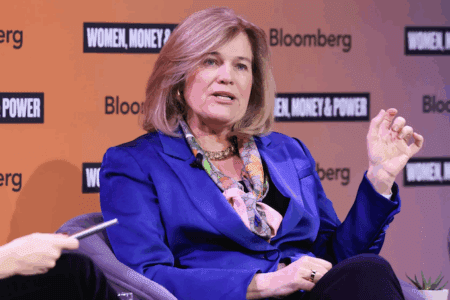
According to a report by CoinDesk, Jenny Johnson, CEO of American asset management giant Franklin Templeton, stated at the SALT conference held this week in Jackson Hole, Wyoming, that aside from Bitcoin, the most noteworthy investment targets in the crypto market would be 'picks and shovels'—that is, the infrastructure that supports the blockchain ecosystem.
Bitcoin is a hedge, but at the same time, it is the 'biggest distraction'
Jenny Johnson described Bitcoin as a 'fear currency' that is seen as a hedge only in an environment where the government might freeze funds or fiat currencies are depreciating over the long term. However, she believes that while Bitcoin has its appeal, it is also 'the biggest distraction in the major disruption that the financial services industry is about to face.'
Investment focus shifts to infrastructure
Jenny Johnson pointed out that the disruptive force does not lie in the crypto assets themselves, but in the infrastructure and networks that support them.
'The real opportunity lies in the picks and shovels—these are the cornerstones of powerful applications.'
She believes that the blockchain network is the 'railway of the starting point', and a series of exciting consumer-grade applications will emerge in the future. She also sees promise in the role of 'validators' in the blockchain space, as they maintain the operation of the blockchain network, providing unprecedented transparency for active asset managers.
'Imagine if you could clearly see all the cash flow in and out of a company in the public market; what a huge information advantage that would bring.'
Market outlook and regulatory challenges
Since taking over as CEO in 2020, Jenny Johnson has led Franklin to actively venture into the digital asset space, launching multiple crypto ETFs and issuing the OnChain U.S. Government Market Fund, becoming one of the first tokenized investment products. She anticipates that mutual funds and ETFs will gradually transition to operate on blockchain in the future, increasing efficiency and reducing costs.
However, she also admitted that the biggest obstacle currently comes from regulation. Regulatory agencies still have doubts about digital assets, especially because 'a large number of crypto assets will ultimately fail', and how to manage such risks remains a current challenge.
Source


